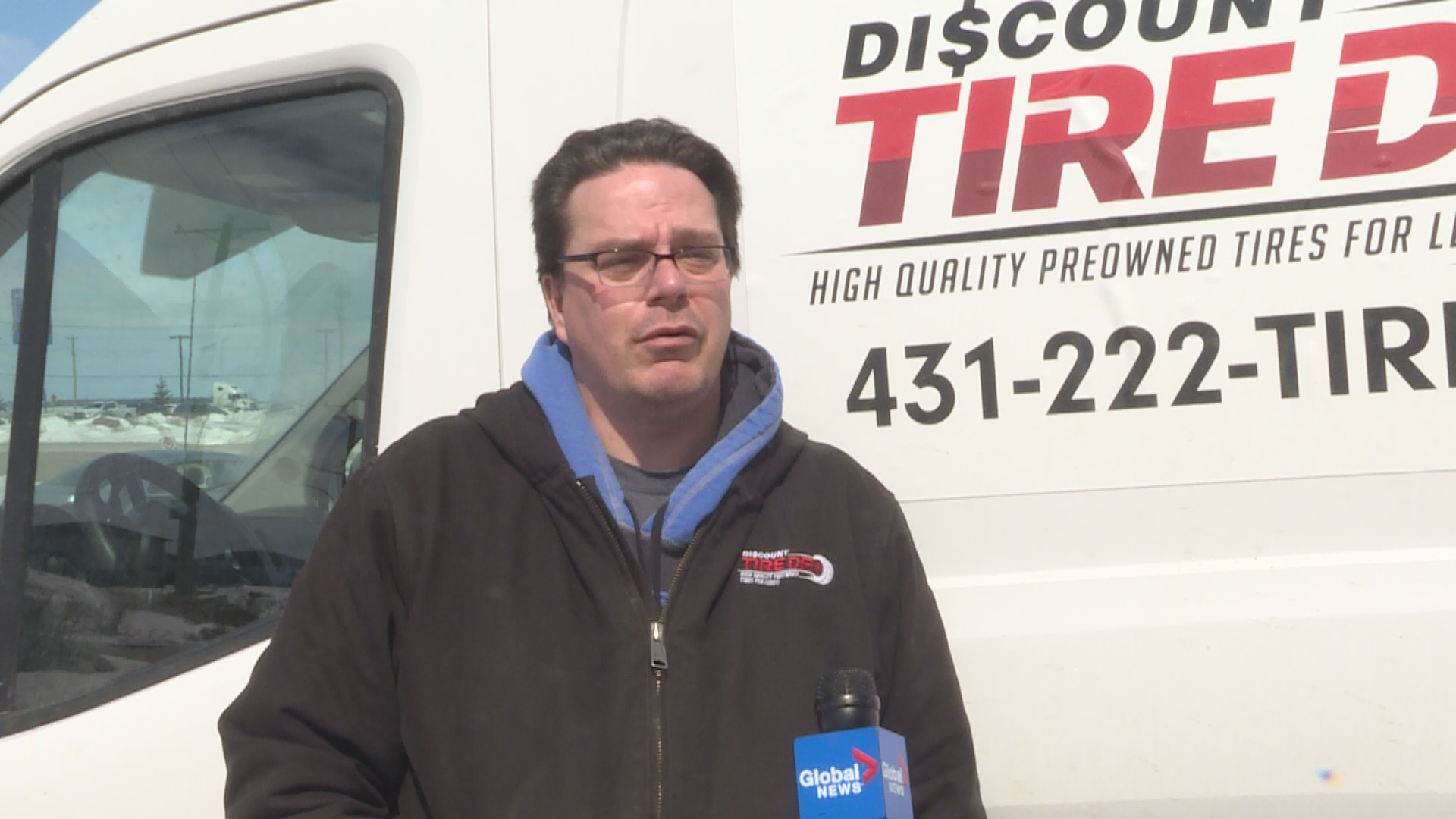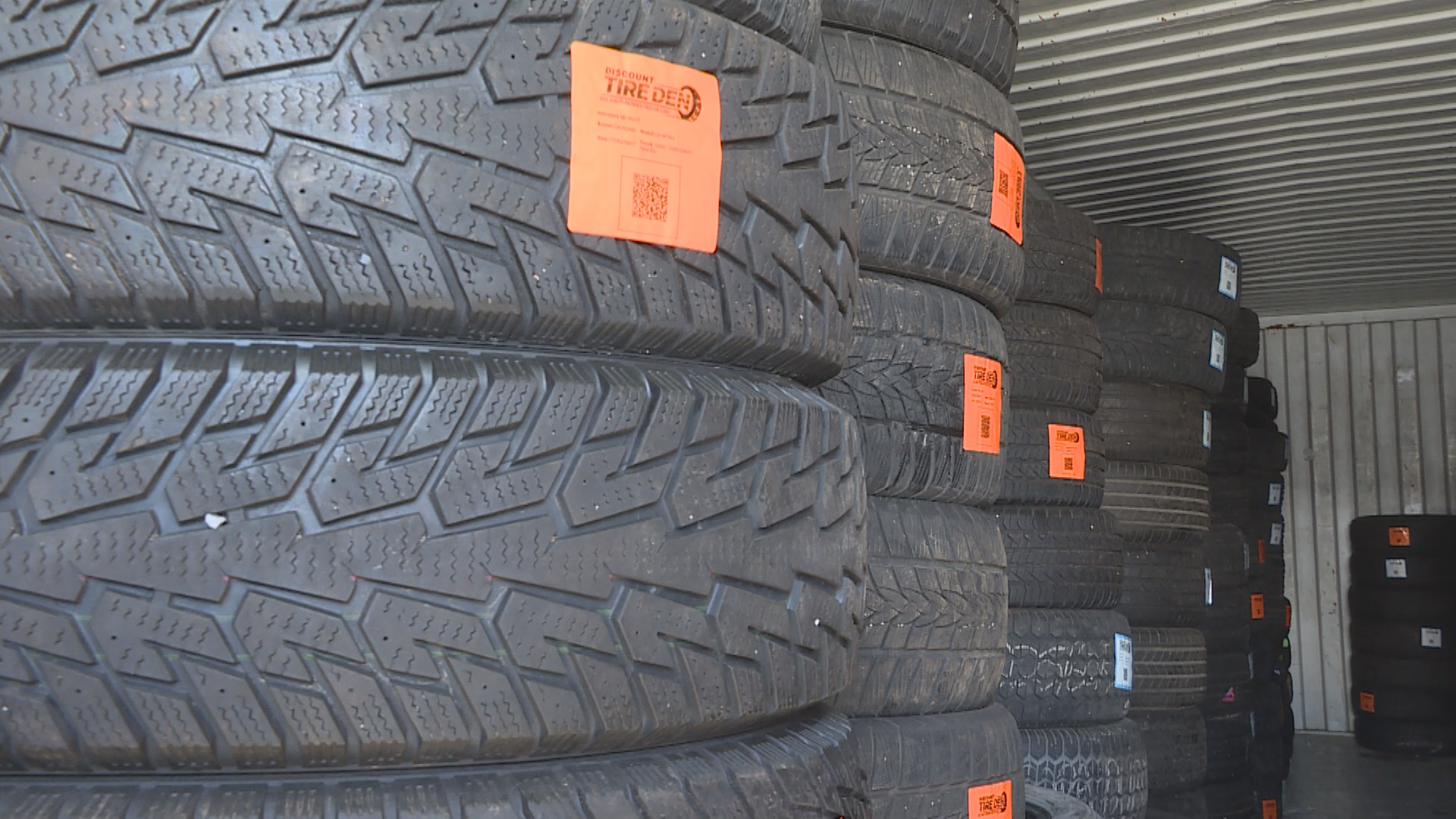There are few products or services left untouched by the rising costs of fuel and food, as Canada’s inflation rate hits its highest point in decades.

In Winnipeg, that means people are searching for deals that others are happy to provide.
“If I have a chance to save money, I’ll definitely do that. And if I have a chance to help save other people’s money, I’m all over doing that as well,” said Jeff Landry, business manager with Discount Tire Den in Headingley.
The business acquires bulk shipments of used tires from suppliers both locally and nationally, and, after an inspection, sells them for anywhere between 30 and 70 per cent lower than retail.
“It’s great savings for everybody,” Landry said.

Get breaking National news
“The vast majority (of customers) is people off of Facebook and people visiting our website directly.”
Discount Tire Den sprung up in 2020, and in many ways couldn’t have come at a better time. The pandemic would soon produce a laundry list of shortages — including for tires — amid supply chain disruptions, which would then be followed by decades-high inflation.
“A lot of people are like ‘I’ve never heard about you. This is a great idea.’ It’s a nice chance to save money because everything is going up in price,” Landry said.
Tires aren’t the only hot ticket items as people look to save a few bucks.
Mennonite Central Committee (MCC) thrift stores, which sell everything from furniture to clothing and housewares, by donation, have seen a boom in recent months.
“The combination of coming out of this COVID era and also having this increase in inflation has sort of created an interesting space in our thrift shops,” said Kristine Heinrichs, thrift coordinator for MCC Manitoba.
“Often shops are shortening hours but have an increase in shoppers, an increase in sales, (and) donations are higher than ever.”
That boost in donations serves a dual purpose, since not only do thrifty shoppers have a wider variety of items to choose from, but MCC uses the money to fund humanitarian work the world over.
Heinrichs adds their stores help bridge the gap between people who are in a position to give, and those looking to keep costs down.
“I think affordable products invite people to live beyond this moment,” Heinrichs said.
“They invite innovation and impactful lives that people can build for themselves and their communities.”















Comments
Want to discuss? Please read our Commenting Policy first.